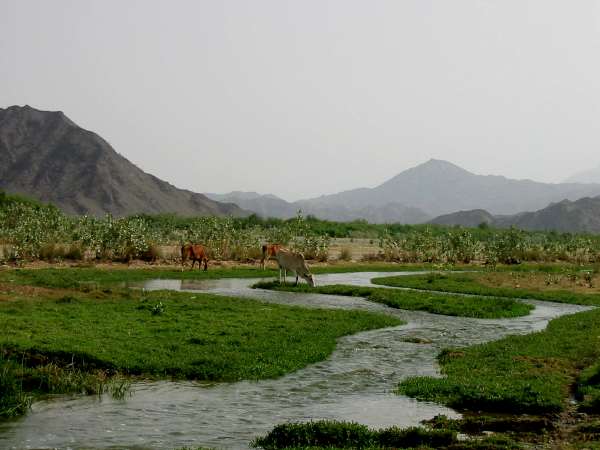
The first half of the way was through a coral desert and low hills. Then we started entering wadis (valleys) such as this one, Wadi Ilyab. Compared to English green landscapes, these do not seem exceptionally lush; but after being in the desert of KSA for a while, this was a small "nature shock".

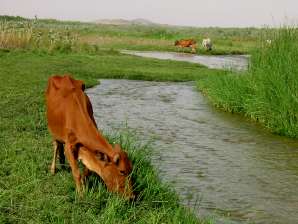
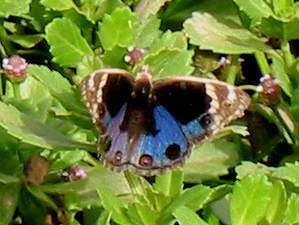
Then the landscape turns steep. Here is a valley on the way to Al Baha, out first goal.
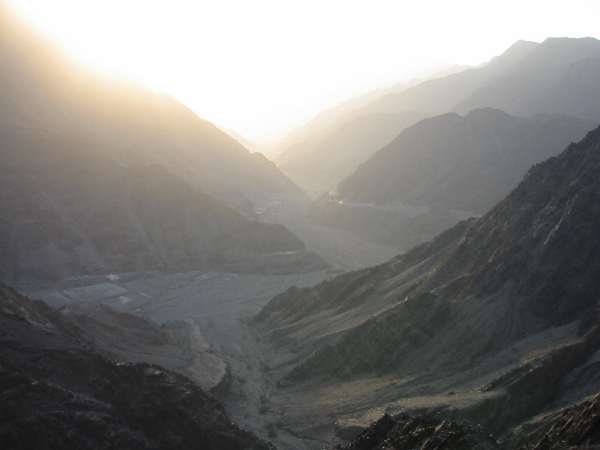
On the way to Al Baha, another small town on top of a high mountain. We were spoiled for the views of of mountains and old forts.
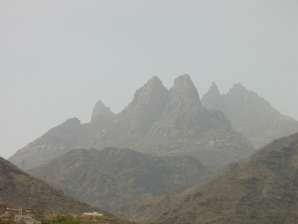
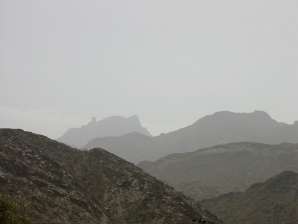
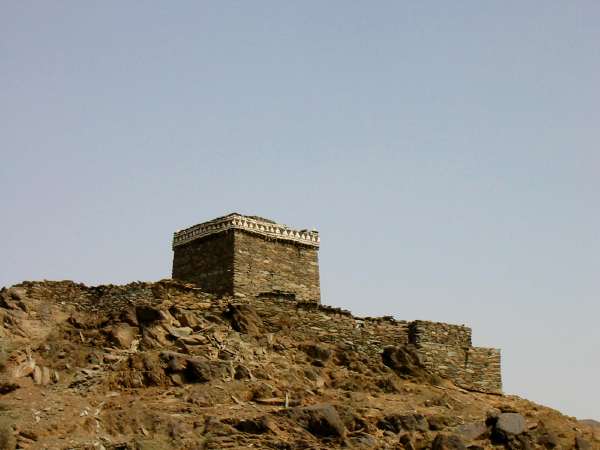
Beautiful views and friendly people. The locals were most helpful in showing us the way to the more obscure sights. Sometimes they even decided to guide us there, driving for many miles out of their way. The kids were often laughing at me, if my face was not covered. I suppose (that is, I hope) that it was because they do not often see a white woman around here.
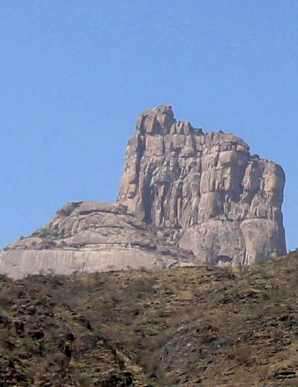
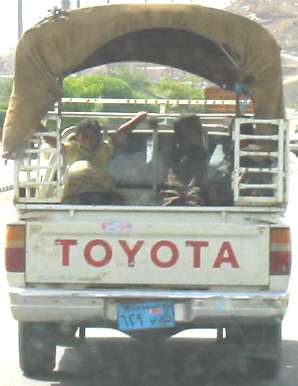
Just before Al Baha, the road turns into a long series of steep pin-turns and at close to the top baboons reign.
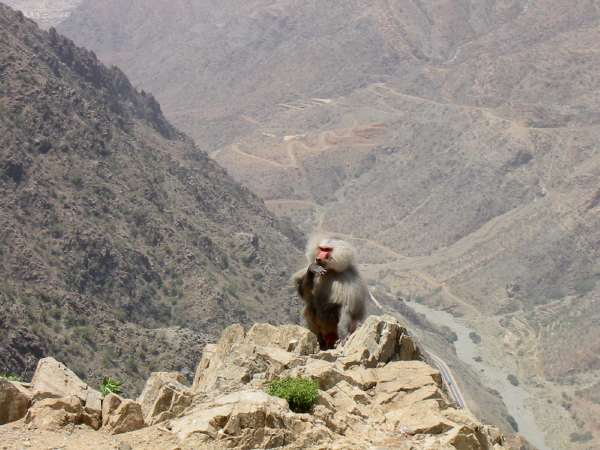
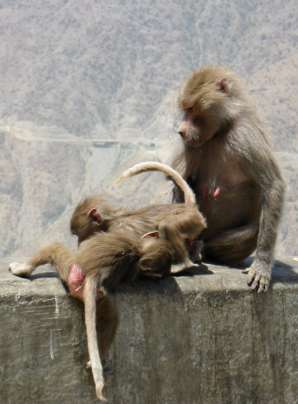
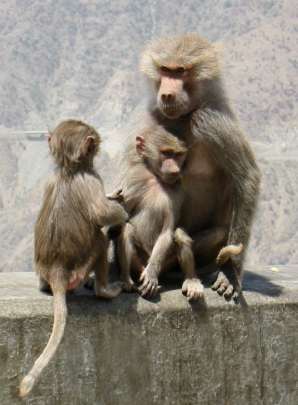
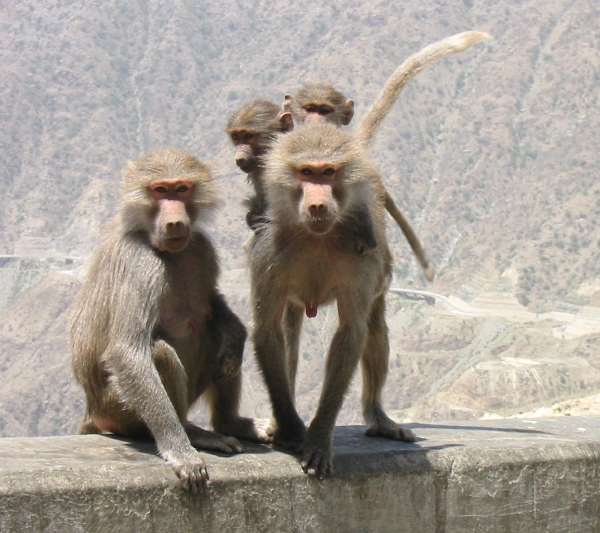
The marble village, just below Al Baha. From the state of the furniture in the houses, it seems that it had been abandoned quite recently, in the last 20-30 years. The houses are built from marble stone.
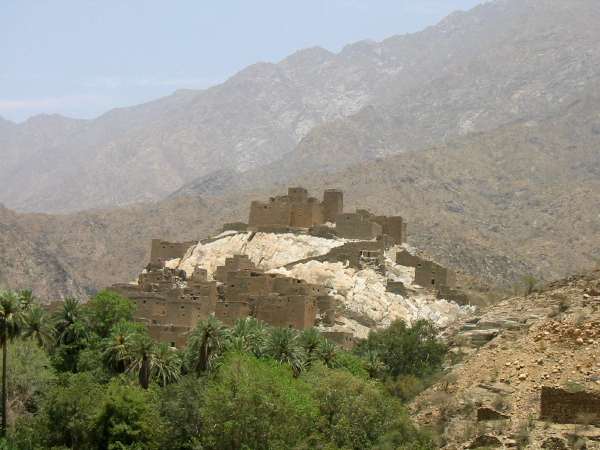
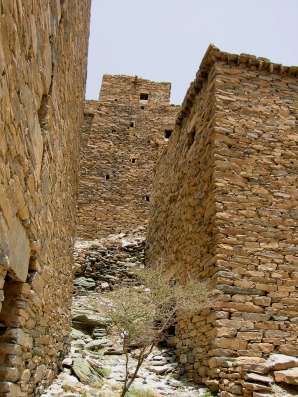
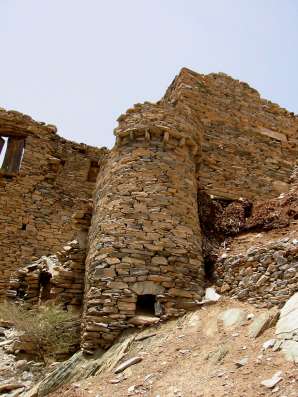
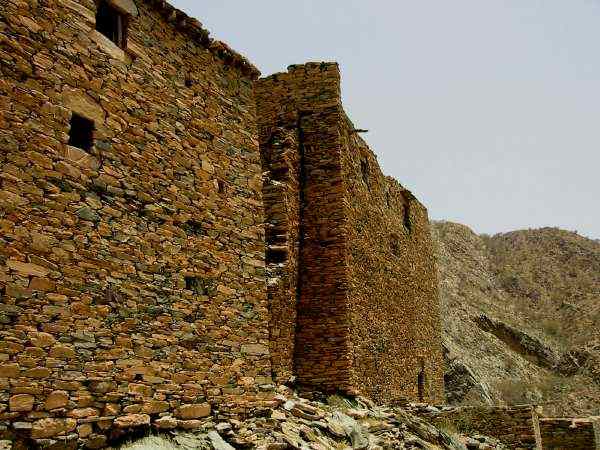
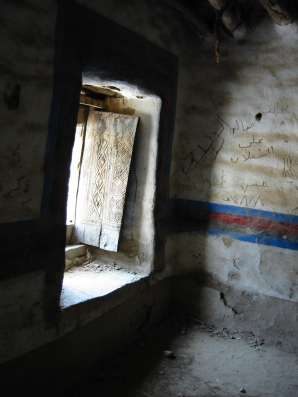
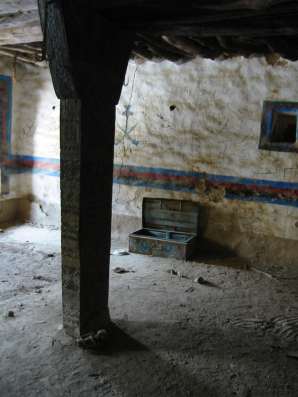
The remains of the gardens are still thriving. The banana trees attract many baboons, and from the village we had a good top view of them playing and chasing each other the trees; it was like an image from The Jungle Book.
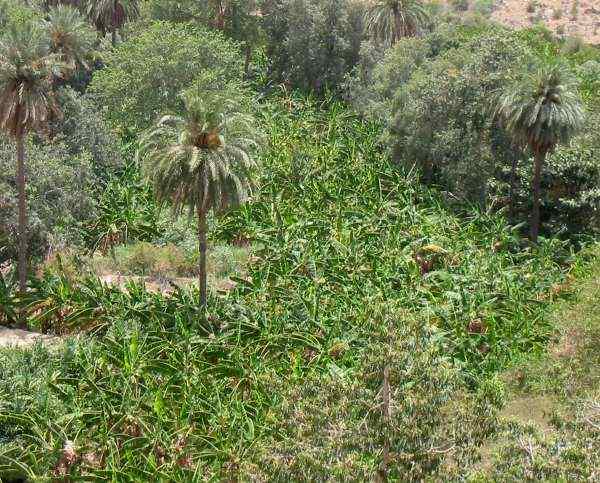
I almost wished I could take one of these beautifully carved windows or doors home with me.
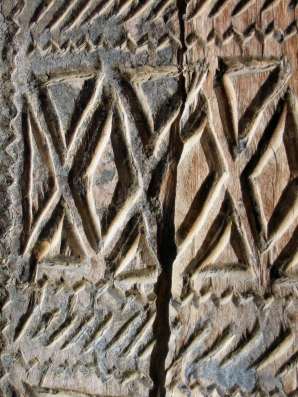
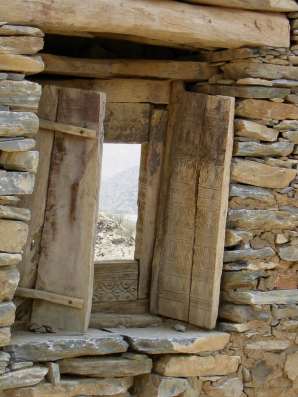
The traditional houses in Abha, and the famous Al Shada Palace:
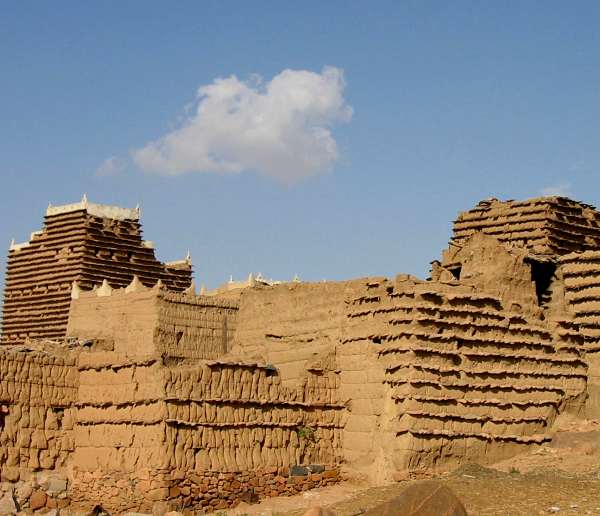
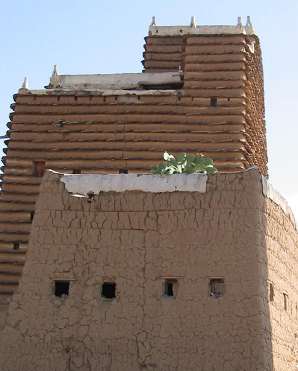
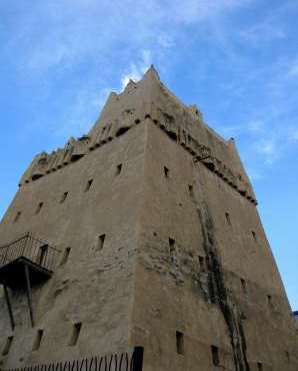
In Al Soodah, the highest point in the kingdom. The 10 minute ride in the cable car down the wall of this mountain is thrilling. The views are great, especially after the refreshing rain.
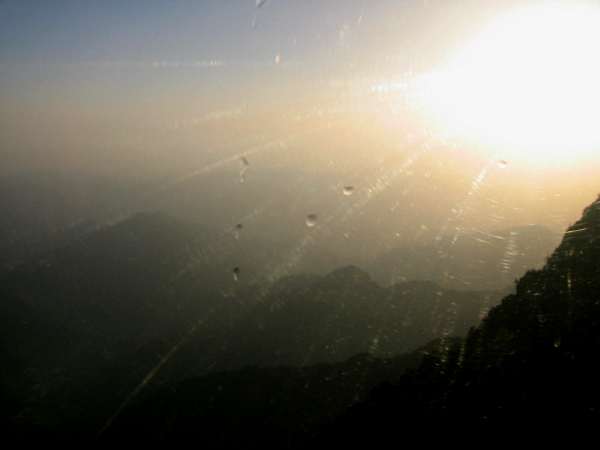
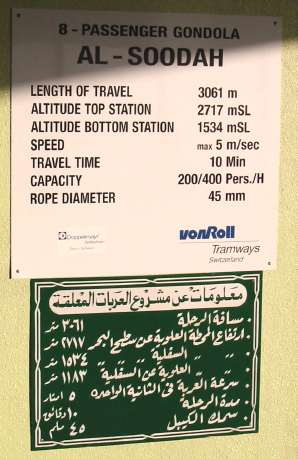
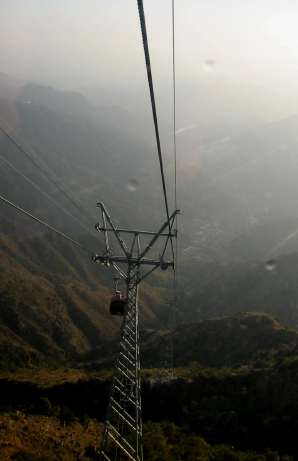
The closest neighbours are across the gorge.
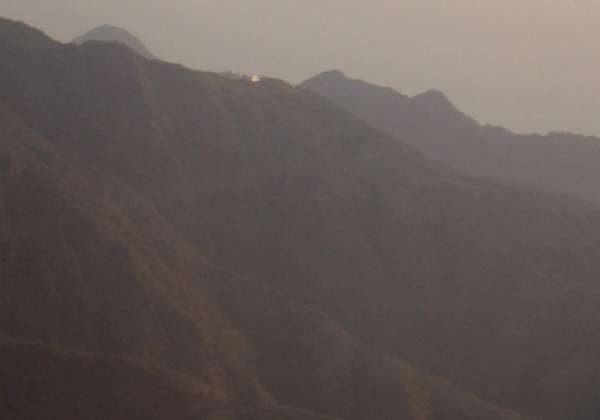
The skies after a short rain in Abha; sometimes it even snows. I loved the architecture of this area. Also the modern buildings follow the traditional stripy pattern.

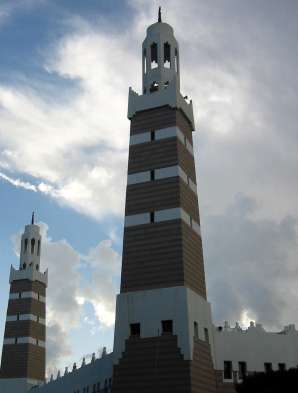
We passed by many of these "sesame oil machines". Forget about water mills or wind power. The camels are the way to go. Well, in this part of the world, anyway.
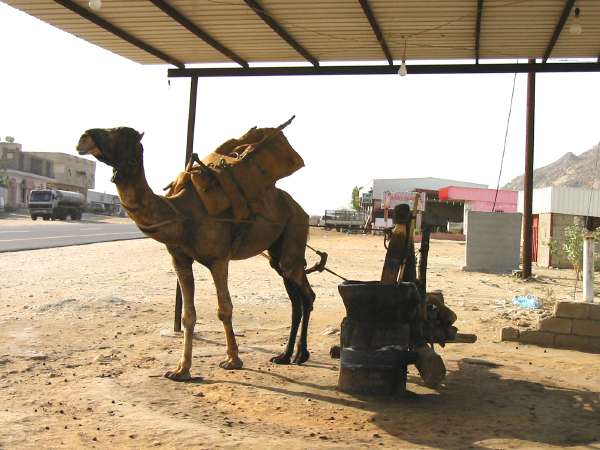
You can tell it's me by the henna painting. The ghatwa on my face made the travelling easier, and it did not really bother me -- it does not obstruct the view for the wearer, just the outsiders. The flora in this mountainous area is much more colourful than around Jeddah, due to the cooler air more rainfall.
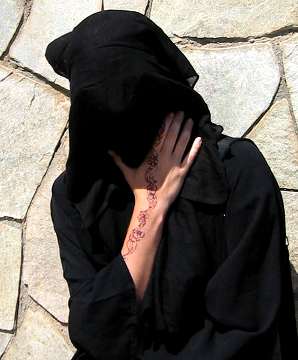
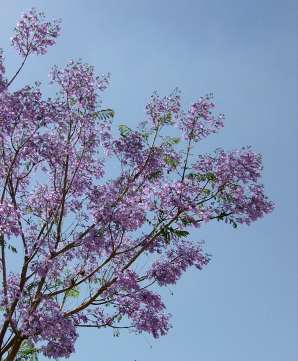
The remains of a hanging village in Al Habala. It was abandoned about 20 years ago; before that, there were about 70 people living here, and the only way to the village was down the vertical mountain wall. Even cattle had to be carried down this way. The rewards were a well protected home which is in the mountain shade most of the day, and a lush green surrounding in an otherwise quite barren area.
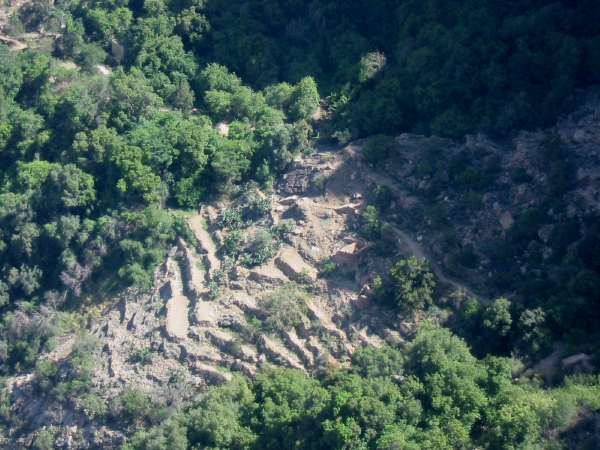
The view from the top of the mountain, before we descend to the village in a cable car. The alternative is to clomb down, which sounded very tempting but we had neither the time nor the right clothing. Well, in my case, I am not sure I would be allowed to wear the right clothing anyway, and any adventurous sports in abaya gets quickly a bit too adventurous for my taste.
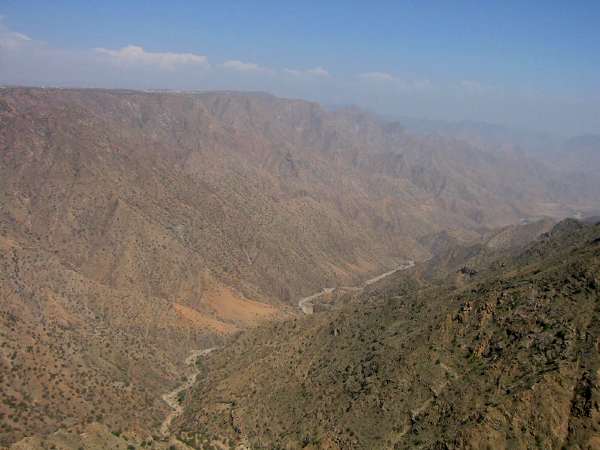
Apparently, the local villagers refused to leave the place for a long time. They even insisted on burying their dead here, in the holes in the mountain wall.
The old man on the second photo is running a small coffee shop in one of the abandoned houses, with excellent Arabic coffee, dates, and spring water straight from the mountain.
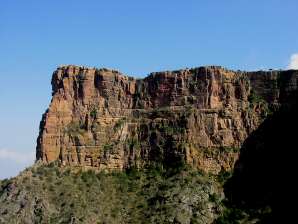
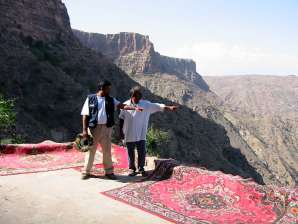
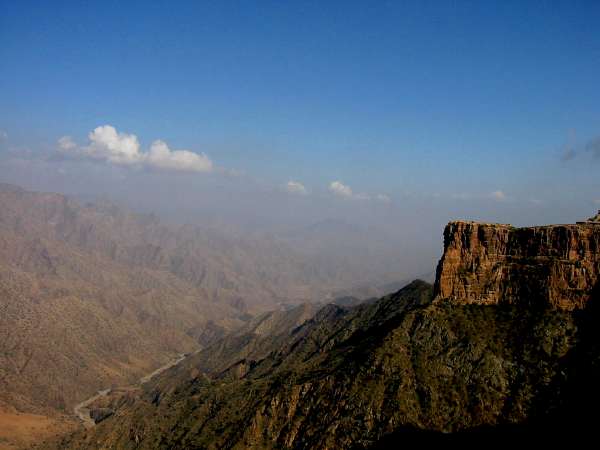
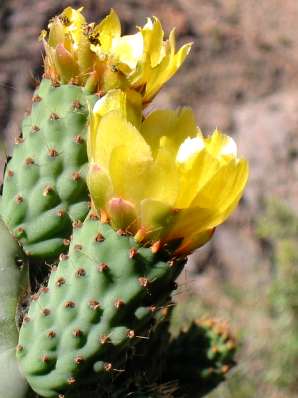
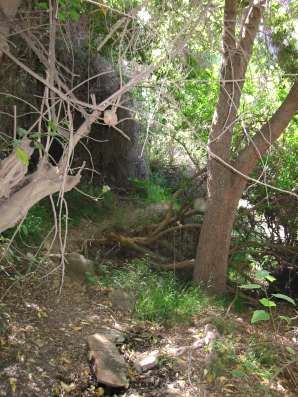
On the way down:
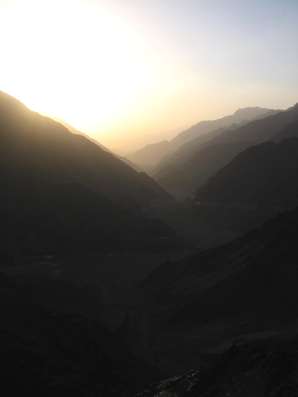
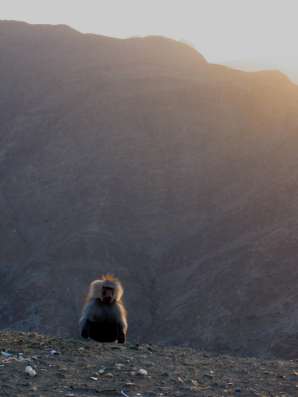





|
page 12 of 12
Silvija Seres, 25 April 2002